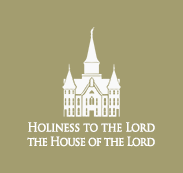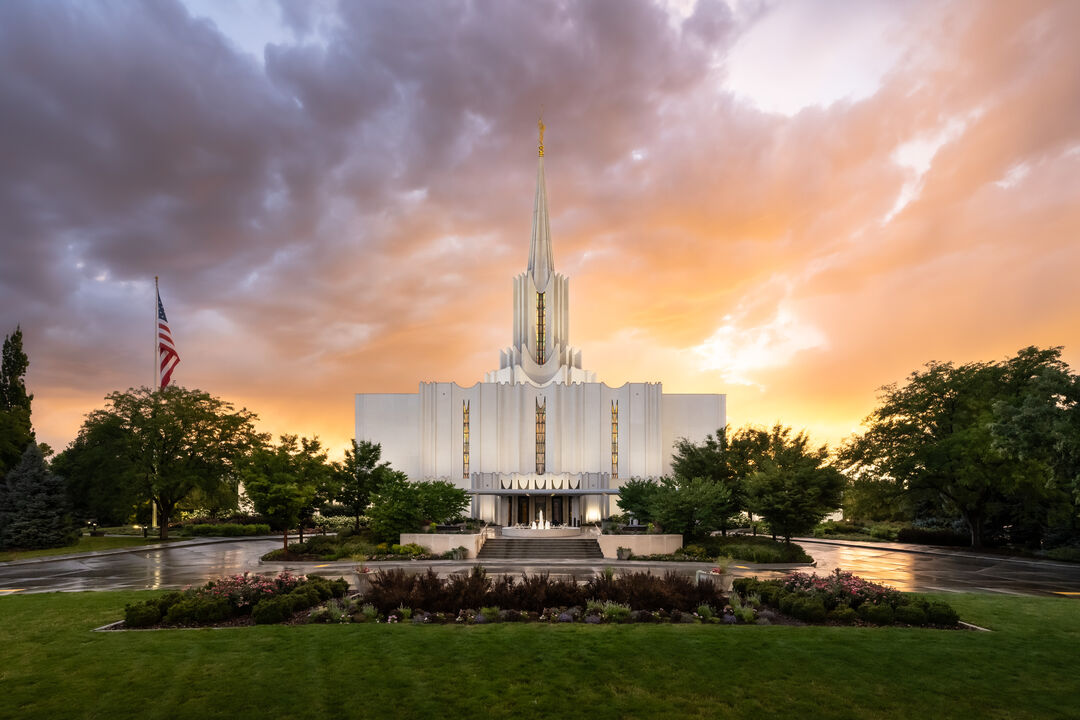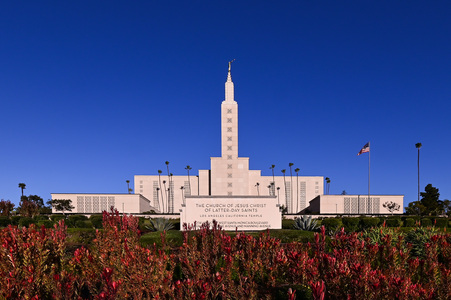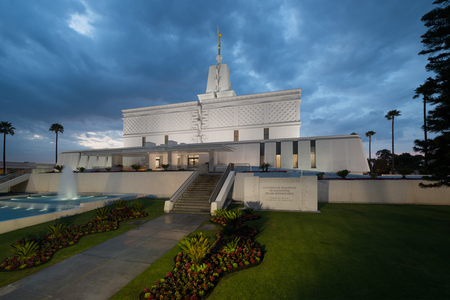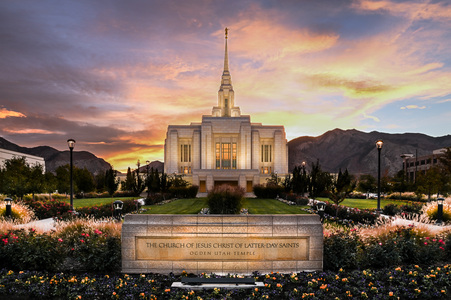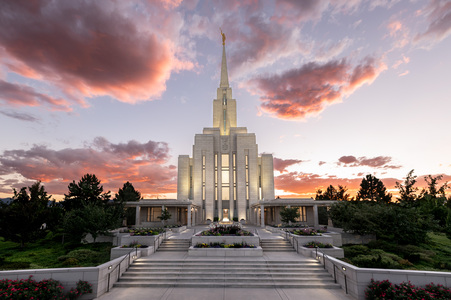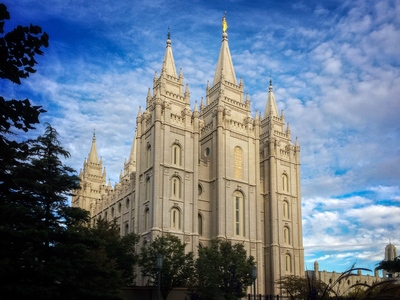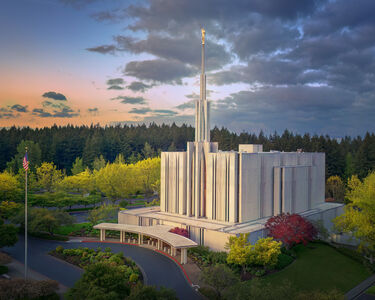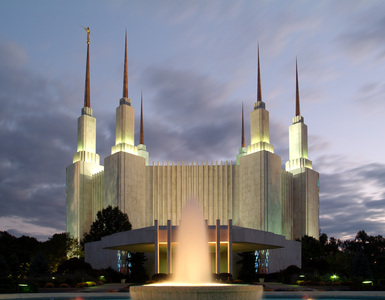Address
10200 S Temple DriveSouth Jordan, Utah 84095-8814
United States
Telephone: (+1) 801-254-3003
Services
NO visitors' center open to the publicNO arrival center available
NO patron housing available
NO distribution center on site (Store Locator)
Announcement:
3 February 1978Groundbreaking and Site Dedication:
9 June 1979 by Spencer W. KimballPublic Open House:
29 September–31 October 1981Dedication:
16–20 November 1981 by Marion G. RomneyPublic Open House:
17 March–28 April 2018Rededication:
20 May 2018 by Henry B. EyringSite:
15 acres | 6.1 hectaresExterior Finish:
Cast stone with white marble chips. Although the tower appears to be of the same material, it actually contains fiberglass in a product called cemlite in order to reduce weightArchitectural Features:
Single attached central spire with an angel Moroni statueOrdinance Rooms:
Six instruction rooms, sixteen sealing rooms, and one baptistryTotal Floor Area:
148,236 square feet | 13,772 square metersHeight:
219 feet | 66.8 metersElevation:
4,438 feet | 1,353 metersTemple Locale
The beautifully white Jordan River Utah Temple stands in the southern Salt Lake Valley, 2 miles west of I-15. It is the namesake of the Jordan River, which flows about a mile east of the temple on its course through the valley. At the entrance to the temple, visitors are greeted by a striking water fountain, which spouts among vividly colored flowers and shrubs. The grounds are open to all who wish to the feel the peace that surrounds this holy building.
Temple History
The Jordan River Utah Temple was the seventh temple built in Utah and the second built in the Salt Lake Valley, following the Salt Lake Temple (1893).
The Jordan River Utah Temple and the Oquirrh Mountain Utah Temple (2009) were the first pair of temples to be built in the same city.
The Jordan River Utah Temple was the only temple dedicated by President Marion G. Romney, who served as second counselor in the First Presidency.
The Jordan River Utah Temple is one of only five temples featuring an angel Moroni statue holding the gold plates. (The other four temples are the Los Angeles California Temple, the Washington D.C. Temple, the Seattle Washington Temple, and the Mexico City Mexico Temple.)
The Jordan River Utah Temple is one of only four temples with six instruction rooms. (The other three temples are the Ogden Utah Temple, the Provo Utah Temple, and the Washington D.C. Temple.)
The Jordan River Utah Temple was originally named the Jordan River Temple.
Plans to construct the Jordan River Utah Temple were announced by President Spencer W. Kimball at a news conference.
At the time that the Jordan River Utah Temple was announced, about half of all of the endowments performed in the Church took place in three of the sixteen operating temples: the Salt Lake Temple, the Ogden Utah Temple, and the Provo Utah Temple.
The construction of the Jordan River Utah Temple and its maintenance costs for many years were funded entirely by monetary donations from local members. The temple site was likewise gifted to the Church.
At the unconventional groundbreaking ceremony of the Jordan River Utah Temple, President Spencer W. Kimball delivered his address, offered the dedicatory prayer, and then mounted a huge Caterpillar tractor. He put into action his oft-quoted admonishment to "lengthen our stride" by operating the controls to move a giant shovelful of dirt.
Just hours before the dedication of the Jordan River Utah Temple, news correspondents announced that President Spencer W. Kimball, who was recovering from surgery and a lengthy hospital stay, would likely be confined to his room at the Hotel Utah during the dedication services. But with tears of joy, he was welcomed to the Celestial Room just before the ceremony commenced.
The Jordan River Utah Temple closed for an extensive renovation on February 15, 2016. The general floor plan remained the same, but selective interior walls came down to accommodate remodeling of the Celestial Room, bride's room, initiatory areas, and the baptistry including the addition of a separate baptistry entrance. The entire interior and exterior were refreshed and beautified with new furnishings, finishes, carpet, artwork, and murals. Escalators were replaced with staircases. Outdated mechanical and electrical systems were replaced with modern equipment including plumbing, heating, and air conditioning. The roof was replaced, and seismic upgrades were made. Modifications to the landscaping has beautified the temple grounds.
